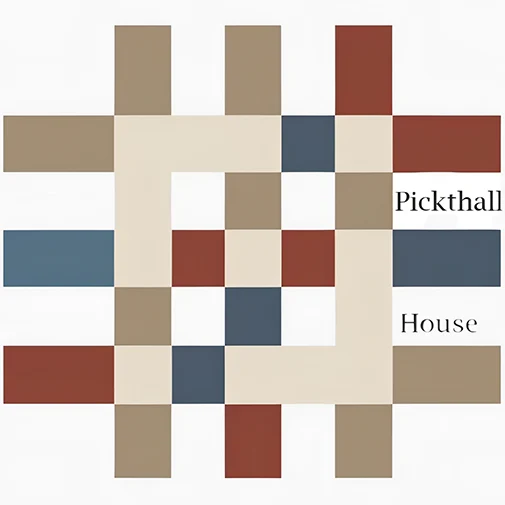The Communities Secretary Michael Gove’s recent speech on anti-semitism is misleading and harmful to community relations.
Naturally, Pickthall House unreservedly condemns prejudice and discrimination against Jews, as well as both the horrific attacks of October 7th and the horrific killing of Palestinian civilians in Gaza that has taken place since — as do all decent people, of all faiths or none.
However, Gove’s speech repeatedly conflates anti-semitism with specific positions on Middle Eastern geopolitics, some of which are held by many Jews, and makes insidious and unsubstantiated about the motives of citizens protesting against what they see as a grave and ongoing war crime, amounting to genocide or ethnic cleansing, in Gaza.
Gove cites various examples of anti-semitic incidents, as well as an overall rise in their occurrence since last year. Pickthall utterly condemns this. But Gove provides absolutely no evidence for his allegation that the organisers of the marches and protests against Israel’s war crimes in Gaza tolerate anti-semitism. If he does have evidence that they tolerate protestors “promoting hate”, he should present it for scrutiny.
The evidence we do have suggests the protests are largely peaceful and law-abiding. Open Democracy reported in early February that arrests at pro-Palestine marches were at a lower rate, relative to the numbers taking part, than at the Glastonbury music festival in 2023. Between October and December 2023 (a time during which millions protested), there were just 153 arrests at the protests, and 117 of those arrested were released without charge.
It seems, however, that what Gove really means by “hate” is anti-Zionism, or opposition to the existence of Israel as a state exclusively dedicated to a nationalist project for persons of Jewish ethnicity. This is a view held by many Jewish scholars and political activists. Indeed, according to a survey this February by the Institute for Jewish Policy Research, less than half of British Jews under 30 identify as Zionists. Does Gove think that Jewish people who oppose Zionism are anti-Semites?
Gove claims that Jewish participants in the protests are merely “tolerated on terms set by others” because they cannot be openly Zionist.
While one certainly does not have to be an anti-Zionist to see Israel’s current actions in Gaza as a grievous wrong, it is probably true that persons sporting symbols of Zionism would not be welcome on some of the protests… just as persons sporting Labour Party regalia would be unwelcome at a Tory Party conference, and waving the Soviet flag might produce some ostracism at the CBI.
Of course, it is true that Zionism is an incredibly important part of the identity of many Jewish people, but this does not mean that the existence of anti-Zionist spaces is some kind of hate crime.
Pro-Zionist opponents of the current war are free to organise their own marches, and perhaps they should, if they feel the anti-Zionist position has become overly dominant among the huge and broad range of positions on the basis of which one might condemn the slaughter of innocent civilians in Gaza.
If Gove believes that anti-Zionism, if implemented, would be effectively anti-Semitic in its effects because Jewish people will never be safe without a state over which they have exclusive ownership, he should simply make this argument. The “common ground on which our democracy depends” is not trust in the mainstream media, or conformity to a narrow, constantly shifting window of opinion considered mainstream, but pluralism and open debate. Gove appears to think too much debate is dangerous, because his views might not always win.
We should remember that states do not have some God-given right to exist in their current form or with their current borders — just ask John Swinney. Nationalists, separatists, and others the world over critique the existing patterns of states, nations, and political identities. They must be free to do so, in all cases, no matter how strongly some feel on one side.
This is why the IHRA definition of anti-semitism, which considers opposition to Zionism to be a form of anti-semitism, is grossly inappropriate for a free society. It actually singles out Jews from other groups and relies on the absurd and false notion that the existence (in any form) of states should be immune from criticism.
The grain of truth in the IHRA argument is that it is potentially anti-semitic to single out Israel for criticism on the basis of different or more demanding moral standards than those applied to other states.
Thus, Gove asks why “there are no BDS campaigns directed against… Syria”, which has killed more Muslims than Israel, and why persecutions in of Uyghur Muslims in China or Rohingya in Myanmar do not equally “energise our campuses”.
The difference between these cases, of course, is that the war crimes in Gaza are an ongoing event, which the British government actively supports through its security ties to Israel, and which diplomatic pressure by the British government actually has a realistic chance of stopping.
In the interests of comparison, one welcome suggestion in Gove’s speech is the idea that anti-semitic and anti-Muslim hate should be dealt with in a “parallel” way. Unfortunately, the whole tone and focus of the rest of his speech does not suggest a parity of concern. Nor do the special protections demanded for Zionism over all other political and national ideologies (even British unionism) appear congruent with this parity.
Real parity with this absurd notion would suggest that criticism of the Islamic identity of, say, Pakistan, which was supposed to serve as a Muslim homeland in South Asia in a similar way that Israel is supposed to be a homeland for Jews, is inherently Islamophobic.
The only consistent logic is to support free speech for everyone who does not seek to incite imminent violence. In other contexts, this is a proposition Gove welcomes.
Gove identifies “ideological radicalisation” on campus as preparing the ground for the alleged anti-Semitism he deplores. His government has passed an important bill to protect freedom of speech at universities, many of which have indeed become ideological monocultures where speech supportive of conservative values, or critical of performative “decolonisation”, is at best grudgingly tolerated.
But Gove’s attempt to roll anti-Zionism into an “extreme left” ideology of “decolonisation theory” is profoundly misguided. Zionism aside, it is not left-wing, right-wing, or centrist to see the slaughter of defenceless civilians and children in Gaza as a crime — it is simply human compassion.
Making one’s views on Israel into the prime focal point of a wider culture war is incredibly foolish by Gove’s own standards: it destroys any credibility in his government’s claims to defend free expression and academic freedom against a ‘woke’ ‘cancel culture’ that really does sometimes curtail these freedoms.
Pickthall House has constantly pointed out that a commitment to free speech means absolutely nothing if it does not extend to ideas you think appalling and indeed dangerous.
Where cases of anti-semitic harassment occur at protests, as they surely do, they should be prosecuted in the same way that all cases of racist harassment should be.
But every Briton’s freedom to disagree with the IHRA or to support BDS, and to campaign and peacefully protest for the same, must never be in question. The bill to ban BDS from universities is profoundly misguided, and has now thankfully been shelved.
Britain faces a potentially horrible future: a security establishment that policies its minorities’ political action, and perhaps even their religion, on the basis of ever-changing, faddish definitions of ‘non-violent extremism’. It is hard, for people on the right and on the left, to tolerate views they despise. Yet Pickthall believes this moral courage can be recovered, and that this dangerous future can still be averted. We can start by defending every citizen’s right to take whatever position they wish about Zionism and every other geopolitical question.


